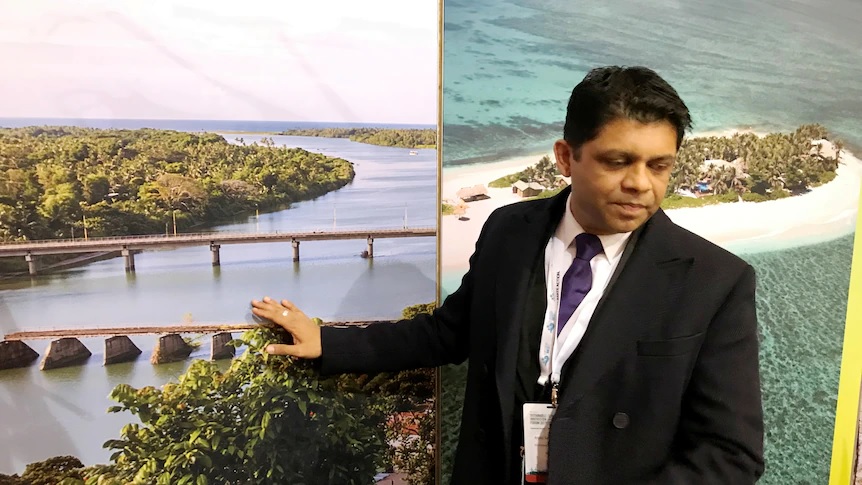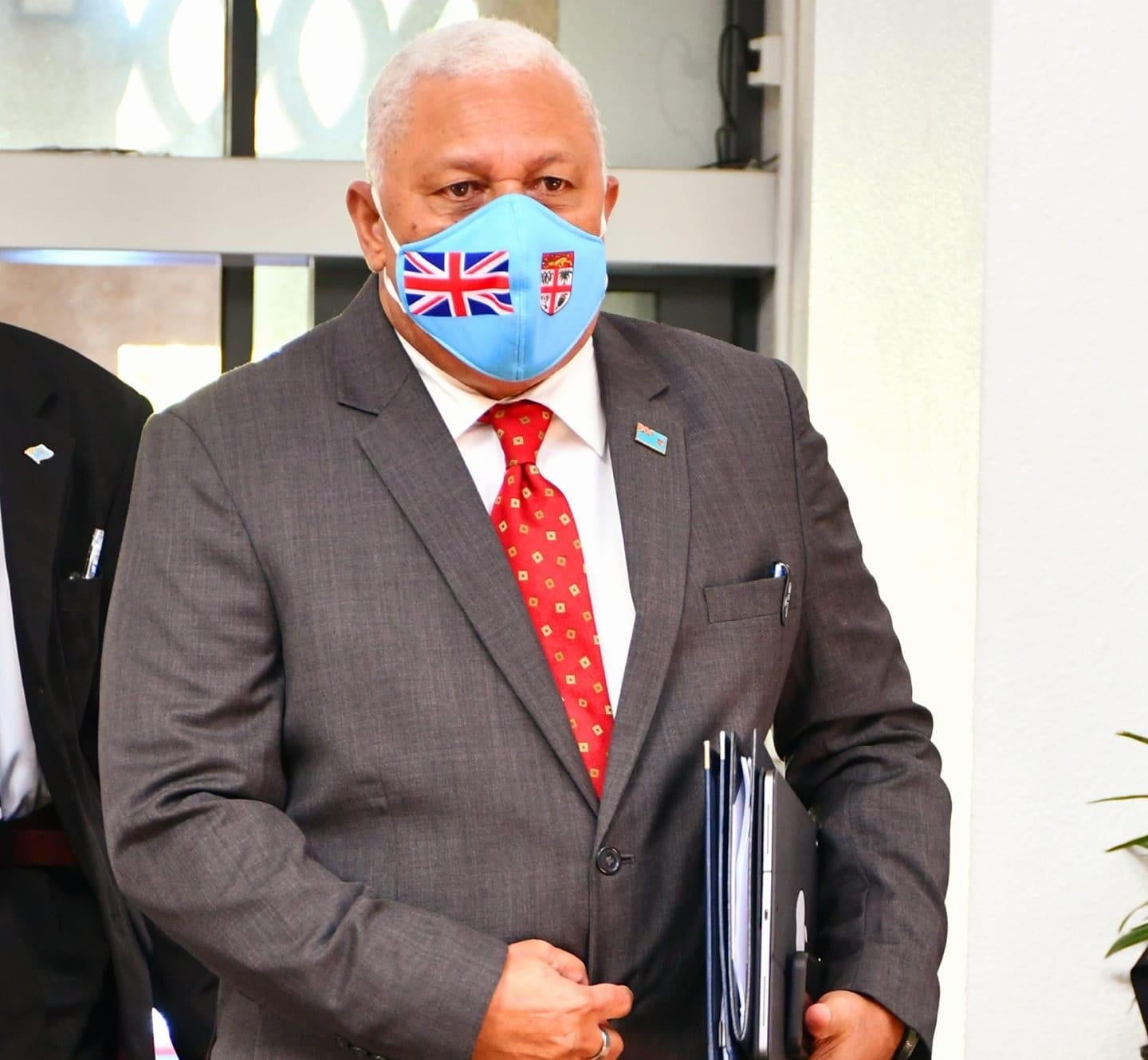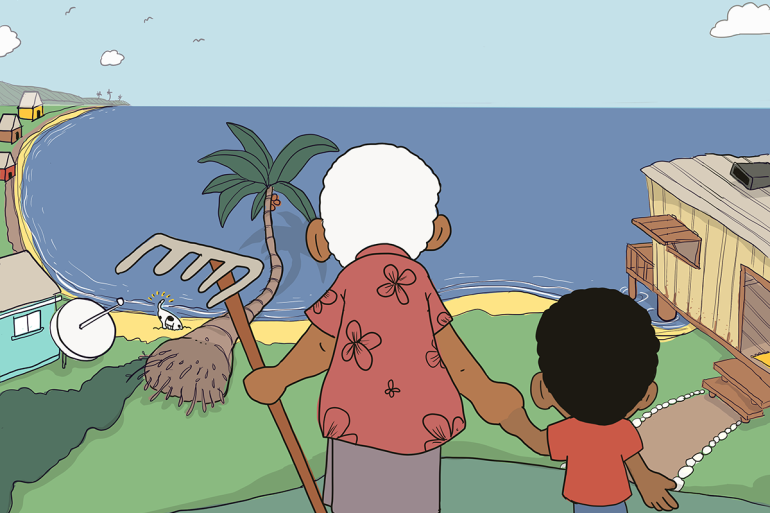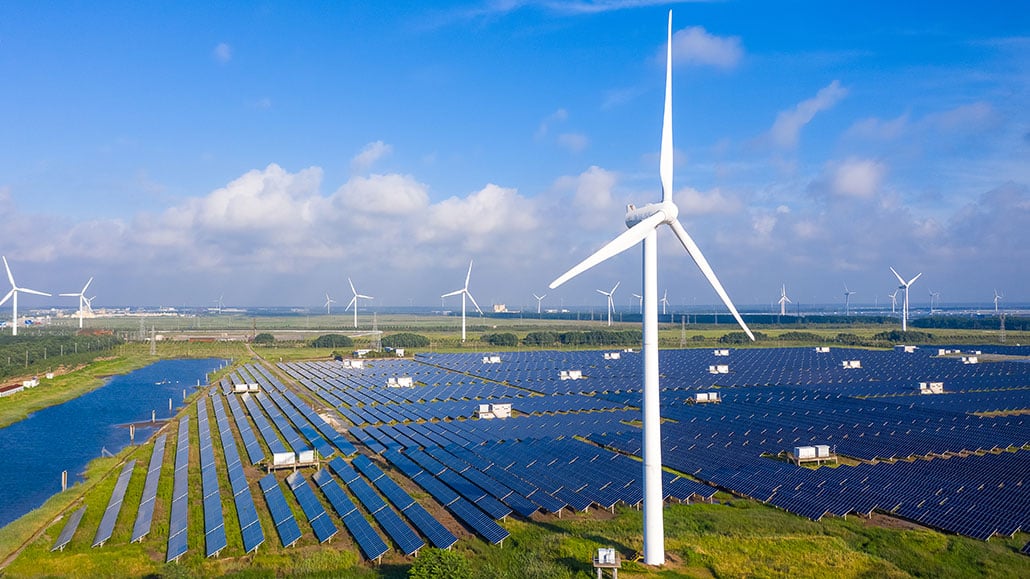Pressure mounts on Australia to adopt stronger climate action in the wake of the latest IPCC report.
The Fijian government says it hopes “everybody can get on board” with a low carbon future, as pressure mounts on Australia to adopt stronger climate action in the wake of the latest Intergovernmental Panel on Climate Change (IPCC) report.
Fiji’s Attorney General and Minister responsible for climate change, Aiyaz Sayed-Khaiyum, told RN the IPCC report had again highlighted the “existential threat” posed by rising sea levels to island nations in the Pacific, the Caribbean and the Indian Ocean.
“Seventy percent of our populations live within 5 kilometres of the shoreline … the reality is, [the report] is an alarm clock, but it’s not a surprising alarm clock,” he said.
“This simply reinforces the realities. Going to Glasgow in about 80 days or so, we have to ensure that the undertakings given under the Paris Agreement are actually practically met and fulfilled.
“Hopefully a lot of countries can be, you know, shamed into adopting new technologies.
“Adopting, for example, a carbon neutral position by 2050.”
Sayed-Khaiyum was responding to the latest IPCC report, released on August 9, which UN secretary-general Antonio Guterres called a “code red for humanity”.
The report projected global warming is likely to increase by more than 1.5 degrees Celsius by 2030, which would cause an increase in the severity of natural disasters like bushfires, floods, droughts and storms.
Prime Minister Scott Morrison said he has been “very mindful” of and “listened to carefully” Pacific Island nations’ consistent advocacy on climate change.
“[Climate change is] a serious challenge, not just for Australia and advanced countries around the world, but all countries around the world,” he said.
But the federal government has defended its policies in response to the IPCC report, with Morrison asserting there would be “no blank cheque” from Australia on emissions targets.
“Our approach is technology and not taxes to solving this problem,” Morrison said.
Morrison’s comments stand in contrast to the administration of U.S President Joe Biden, which has been lauded by Pacific Island nations over commitments to significantly reduce carbon emissions in the coming decades.
Biden was invited by Fiji’s Prime Minister Frank Bainimarama to address the Pacific Islands Forum on its 50th anniversary earlier this month.
“The Pacific Island nations know better than anyone that averting the worst effects of climate change is going to save lives,” Biden said at the Forum.
Bainimarama said Mr Biden made history by being the first US president to attend the forum, and for bringing “America forcefully back to the right side of climate history”.
Biden has pledged to reduce the United States’ carbon emissions by at least half of 2005 levels by 2030.
“Fiji and USA’s net-zero commitments by 2050 must become the entire world’s — zero excuses,” Bainimarama said.
“Together, as a united Pacific, we look to securing a historic outcome in Glasgow at COP26 which brings the 1.5-degree Celsius target within reach.”
The Fiji government’s comments add to pressure on the Australian government over climate change.
The British government withdrew Morrison’s invitation to speak at the UK’s global climate leaders summit in December 2020 because Australia had not set ambitious enough carbon emissions reductions targets.
In April this year, the Climate Council called upon Australia to aim for net-zero carbon emissions by 2035, warning that Australia could face trade penalties for failing to match climate targets by the US and EU.
Sayed-Khaiyum, meanwhile, said Fiji was continuing to deal with a “double whammy” of natural disasters and the economic fallout of COVID-19.
Fiji has among the highest per capita coronavirus infections in the world.
“We’ve had three cyclones in the past number of months … we’ve had about 16 since 2016,” he said.
This story was produced by Max Walden, published at Australian Broadcasting Corporation (ABC) on 11 August 2021, reposted via PACNEWS.




